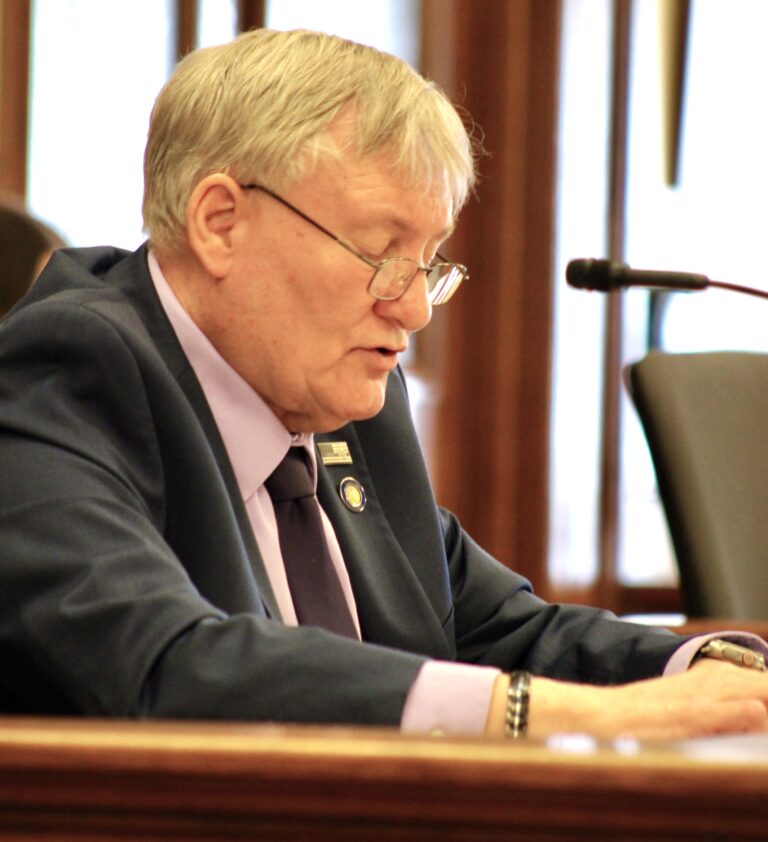The Capitol Report, produced by WisPolitics.com — a nonpartisan, Madison-based news service that specializes in coverage of government and politics — provides a weekly analysis of issues being
debated in Wisconsin state government. It is underwritten by the WNA and produced exclusively for its members. WisPolitics President Jeff Mayers is a former editor and reporter for the Associated Press and a former political writer for the Wisconsin State Journal. The WisPolitics logo can be downloaded here.
Editor’s note: This column is provided to Wisconsin Newspaper Association members by WisPolitics.com. Proper attribution to WisPolitics.com is appreciated. Also, please publish the tagline that is included at the end of the column.
Advocates blast family, medical leave proposals
Workers, advocates and Democratic state lawmakers met on the 25th anniversary of the federal Family and Medical Leave Act to speak against GOP legislation they say would curtail protections for workers.
The first bill specifically would prohibit municipal and county governments from enforcing their own laws related to employment discrimination, hours and overtime, and benefits. It also would bar cities and counties from setting a minimum wage for their employees and those who perform work under a contract for them, and from creating more stringent licensing requirements than the state already has in place.
The second would curtail some of the protections of the Wisconsin Family Medical Leave Act.
Sen. Chris Kapenga, R-Delafield, the author of the preemption bill, sees it as a way to prevent the state from becoming a patchwork of labor laws.
“Wisconsin is made up of 1,924 different municipalities,” Kapenga said during the bill’s public hearing. “Imagine the complex web of regulation that businesses and employees would be forced to comply with if every one of those municipalities passed separate ordinances governing employment laws.”
But at the news conference Feb. 5, Rep. Sondy Pope, D-Mt. Horeb, and Sen. Janis Ringhand, D-Evansville, decried the two Republican bills as those that would harm Wisconsin workers, and championed a bill they introduced that would guarantee some workers access to paid leave.
One of the workers present, 29-year-old Chineva Smith of Milwaukee, said both she and her sons have health challenges, and that she has had to job-hop because of how much time she takes off for medical reasons. She called on legislators to not only keep in place, but expand the state’s medical leave act, not repeal portions.
“Parents should never be put in the position to have to choose a job over their children’s health and well-being,” Smith said. “[And] in the midst of dealing with mixed emotions of health challenges, no one should have to deal with the stress of worrying about their career, income and livelihood.”
Activist groups argued the bill prohibiting local labor ordinances would undermine economic security for workers. And Kristen Taylor, with the activist group Worker Justice Wisconsin, argued that the proposed bill would create more work for the state’s Equal Rights Division if the city divisions that address employment discrimination claims had to transfer their cases to the state.
“If it’s already taking at the state level over a year to investigate a discrimination complaint, then I don’t see how it’s going to help, eliminating local options and adding to what [the Equal Rights Division] is already struggling to keep up with on the state level,” Taylor said.
The Kapenga bill has passed a GOP-run Senate panel.
Several groups, such as AFSCME Council 32, the Wisconsin Counties Association, and the cities of Madison and Milwaukee, argue the bill would undermine local control, reduce the quality of the workforce and lead to inequity.
Groups like the Wisconsin Counties Association say their members, all 72 Wisconsin counties, need the ability to regulate industries specific to their areas, such as seasonal tourism.
“This provision applies a one-size-fits-all approach to local regulation,” wrote Wisconsin Counties Association government affairs associate Marcie Rainbolt.
The Capitol Report is written by editorial staff at WisPolitics.com, a nonpartisan, Madison-based news service that specializes in coverage of government and politics, and is distributed for publication by members of the Wisconsin Newspaper Association.
Copyright © WisPolitics.com



